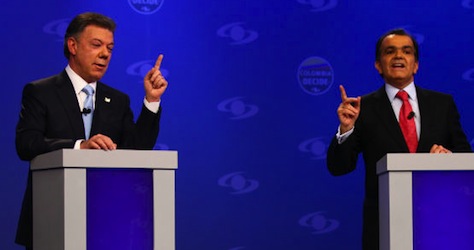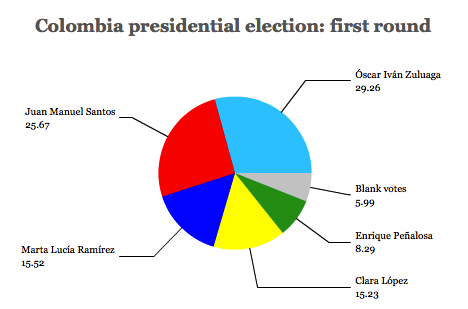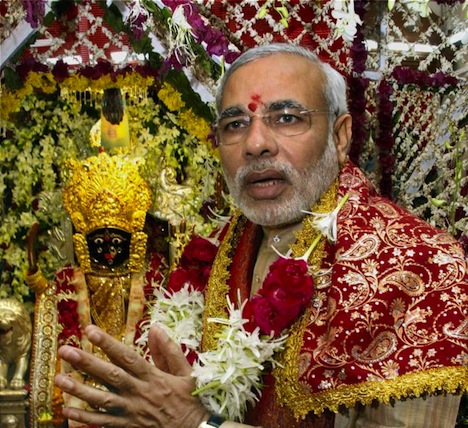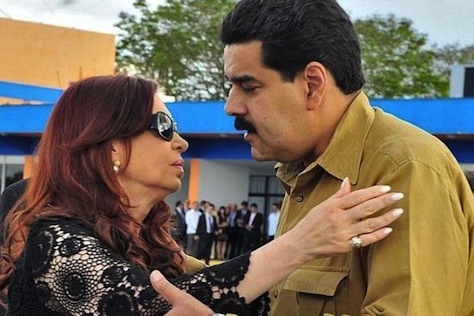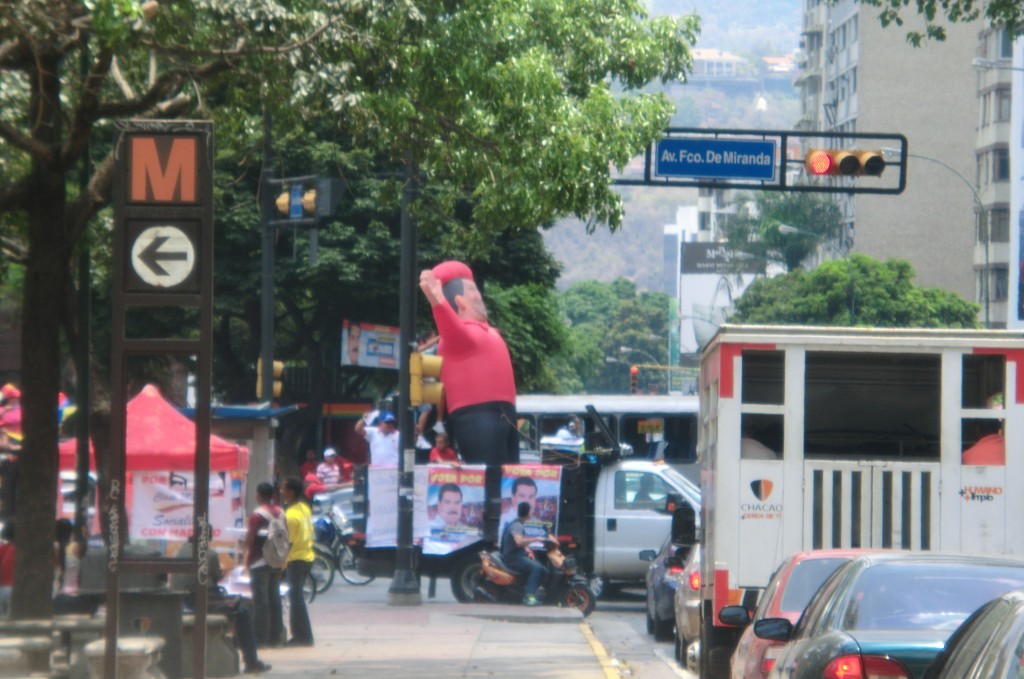The second round of Colombia’s presidential election has been billed as a momentous decision between war and peace.![]()
Juan Manuel Santos, the incumbent, has staked his presidency on the ongoing negotiations with the Fuerzas Armadas Revolucionarias de Colombia (FARC, the Revolutionary Armed Forces of Colombia), a left-wing group founded in 1964 out of the political turmoil that stretches back to the assassination of liberal presidential candidate Jorge Eliécer Gaitán in 1948 and ‘La Violencia’ that followed for the next decade. Over the last half-century, FARC has been an impediment to a truly peaceful Colombia, even as the worst days of the drug-fueled violence of outfits like the Calí and Medellin carters have long receded.
His opponent, Óscar Iván Zuluaga (pictured above, right, with Santos, left), is the protégé of former Colombian president Álvaro Uribe, who broke with Santos over the FARC talks. Santos served as defense minister under Uribe, he won the presidency in 2010 with Uribe’s full support, and he had been expected to continue the same militaristic push against FARC that Uribe had deployed.
When FARC offered up the possibility of peace talks, Santos surprisingly met the offer, and official talks kicked off in October 2012. The talks were designed to reach agreement on five key points — agrarian land reform and agricultural development, political participation for former FARC militants, the mechanics of ceasefire and ending the conflict, staunching the drug trade and creating a truth commission and compensation for the victims of abuses at the hands of government-backed paramilitary groups.
Those talks have reached accords on three of the five areas, most recently on ending drug trafficking — more than two decades after the death of Pablo Escobar and the demise of Colombia’s major cartels, FARC has become a leading conduit for cocaine and other drugs from Colombia and elsewhere in South America northward.
Zuluaga hasn’t exactly said that he’ll end the talks if he’s elected president. But he has indicated he’ll impose conditions as president that FARC leaders seem unlikely to accept, all but ending the best chance in a half-century to negotiate a political solution to the leftist insurgency, which follows a relatively successful Uribe-Santos military effort that has significantly weakened, if not eliminated, FARC. Moreover, Colombians say in polls that they have no sympathy for FARC, and they generally support the talks, in principle at least.
So the election is truly momentous, and the result will almost certainly determine whether the FARC talks will continue.
* * * * *
RELATED: Zuluaga edges out Santos in first round
RELATED: Five reasons why Zuluaga is beating Santos
in Colombia’s election
* * * * *
That’s not the reason, however, that Santos appears to be losing the election, after trailing Zuluaga in the first round on May 25.
Mary O’Grady, writing for The Wall Street Journal, serves up an analysis of the Colombian election that misses entirely the reason why Santos is in such trouble headed into the June 15 runoff:
A year ago Mr. Santos—part economic liberal, part old-fashioned populist—seemed certain to keep his job. Real gross domestic product expanded by an average annual 4.7% from 2010-13, and in 2011 Colombian debt won investment-grade status from all three major U.S. credit-rating firms.
Had Mr. Santos run on this record he might have won in the first round. Most voters don’t see much difference on economic policy between him and Mr. Zuluaga—the former CEO of a Colombian steel fabricator. But he made the FARC talks the centerpiece of his re-election campaign, which opened his weakest flank.
According to O’Grady (and, to be fair, other commentators), Santos would be winning this election if only he had merely rebuffed FARC’s negotiation entreaties. Most beguiling is the notion that Santos’s chief strength is Colombia’s economy.
It’s not. That’s actually the issue that’s most jeopardized his reelection. He could lose on June 15, not because of the FARC talks, but because he hasn’t offered any solutions to the everyday Colombians who feel like they have lost out in what otherwise looks like a stellar economy.
If Santos loses on Sunday, it will be less because he spent so much time negotiating with Iván Marquéz, the lead FARC negotiator, but because he didn’t take Cesar Pachón, a leading agrarian protester, seriously enough. Continue reading In Colombia’s election, it’s the economy (not FARC), stupid
